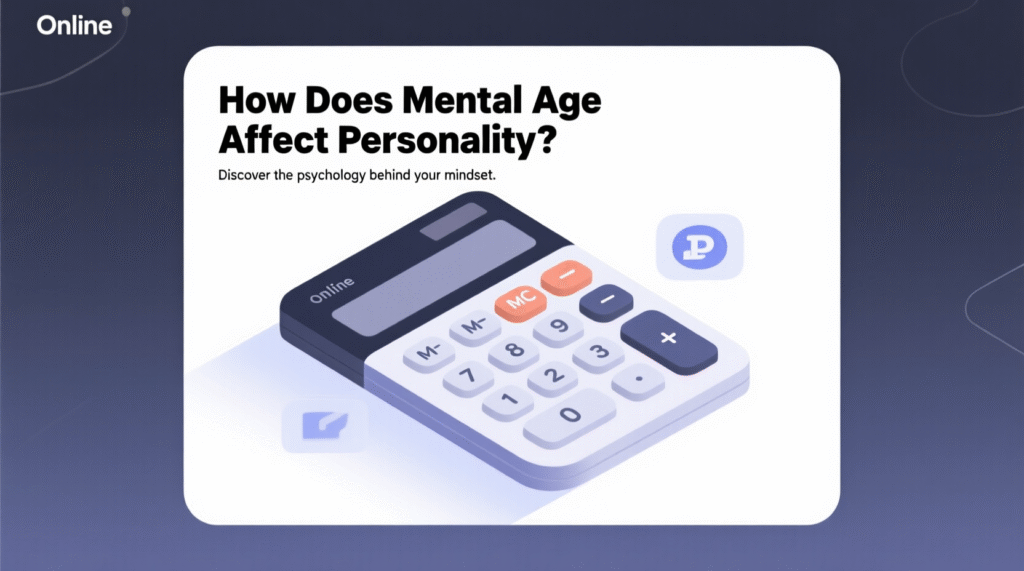
Most people know their chronological age—the number of years they’ve lived. But your mental age often reveals more about your personality than your birthday ever could. Mental age reflects how you think, feel, and respond compared to others, and it directly shapes the way your personality comes across in daily life.
Mental age affects personality by influencing how playful, balanced, or mature you appear to others.
- A younger mental age leads to a more spontaneous, curious, and fun-loving personality.
- A balanced mental age blends flexibility with responsibility.
- An older mental age fosters wisdom, empathy, and caution.
Learn why understanding mental age is important for growth in why is mental age important.
What Makes Mental Age Different From Real Age?
- Chronological age: fixed by the calendar—your birthdays add up whether you like it or not.
- Mental age: flexible, shaped by experiences, growth, and mindset.
Two people can both be 30 years old, but one might act like a 20-year-old (energetic, carefree) while the other feels more like 40 (practical, grounded). That difference is why mental age is so important in personality development.
Take our mental age test free to understand how your mindset shapes your personality traits.
Personality Styles by Mental Age
| Mental Age Profile | Personality Traits | Everyday Example |
|---|---|---|
| Younger | Playful, adventurous, open-minded, impulsive | Loves last-minute trips, enjoys risk, thrives in social settings |
| Balanced | Adaptable, stable, socially aware, steady | Can work hard all week but still make time for friends and fun |
| Older | Reflective, responsible, empathetic, cautious | Prioritizes planning, prefers depth over novelty, values routine |
Real-World Scenarios
- Young Mindset in an Older Body: A 40-year-old who thinks like 25 may seem fun, adventurous, and magnetic, but might struggle with responsibilities like budgeting or long-term planning.
- Mature Mindset in Youth: A 22-year-old with a mental age of 35 could appear calm and dependable, often taking on leadership roles, but might feel “too serious” among peers.
- Balanced Age Alignment: Someone whose mental age matches their real age often feels most at ease, switching between responsibility and play with ease.
Why Mental Age Matters for Personality
- Decision-Making
- Younger → risk-taker, spontaneous choices.
- Older → cautious, thoughtful planning.
- Social Behavior
- Younger → life of the party, always curious.
- Older → prefers meaningful conversations and stability.
- Emotional Regulation
- Younger → expressive, sometimes reactive.
- Older → measured, empathetic, steady under pressure.
Read mental age and decision-making to understand how thinking style impacts personality.
FAQs
Q: Can mental age explain why my personality feels out of sync with my peers?
Yes. If your mental age is younger, you may seem more playful; if older, more serious or mature.
Q: Does a high mental age mean a “better” personality?
Not necessarily. It can bring wisdom and empathy, but may reduce spontaneity. Balance is key.
Q: Can mental age change over time?
Absolutely. New experiences, personal growth, or stress can shift your mental age and the personality traits you show.
- The psychological basis behind personality traits is explored in psychology.
- How mental age influences behavior is explained in how does mental age affect personality.
- The relationship between maturity and decisions is discussed in mental age and decision making.
- You can see how this applies to you by taking the mentalagetest.
- Different maturity levels are described in age ranges.
- Ways to develop healthier traits appear in how to improve mental age.